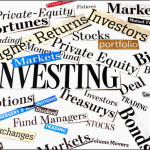 Amid heightened market volatility and slumping Treasury yields, many investors have started to believe lower rates will linger for a bit longer, meaning dividend plays could make hay for an extended period while the Fed falters. Such a scenario may look ideal for a strategically timed new smart-beta product from Guggenheim Investments.
Amid heightened market volatility and slumping Treasury yields, many investors have started to believe lower rates will linger for a bit longer, meaning dividend plays could make hay for an extended period while the Fed falters. Such a scenario may look ideal for a strategically timed new smart-beta product from Guggenheim Investments.
The newly launched Guggenheim Dow Jones Industrial Average Dividend ETF (DJD) is weighted based on the dividend yields of the 30 stocks in the index. While the Dow Jones Industrial Average index remains one of the most popular indices in the world, it’s also one of the most maligned.
Created in 1896 by Charles Dow, the blue-chip benchmark follows a price weighting mechanism, which means the priciest stock in the index also gets the maximum weight. Not fundamentals. Not market capitalization. That also means price volatility of Goldman Sachs weighs more on the index despite the fact that Apple Inc, also a Dow component, has more than seven times the market capitalization of Goldman.
The good thing about the Dow, however, is that all 30 of its constituents pay regular dividends. In fact Dow components such as Johnson & Johnson and Proctor & Gamble have some of the longest dividend increase streaks among all US domiciled companies. The new ETF targets the Dow’s dividend winners.
The passively-managed DJD tracks the Dow Jones Industrial Average Yield Weighted Index and weights the Dow components by trailing 12-month dividend yield. That means Chevron (6.44 percent), Verizon (5.11 percent) and General Electric 4.79 percent) are the new fund’s top three holdings though none of them are among the top ten holdings in the traditional price-weighted Dow index.
This strategic beta approach may attract long-term investors since reinvested dividends historically have been a significant source of the Dow’s total return.
The new fund charges 0.3 percent a year, which is fairly higher than more broad based dividend focused products such as the Schwab US Dividend ETF (SCHD), which costs just 0.07 percent annually.
Disclosure: No holdings
Contact Ulli